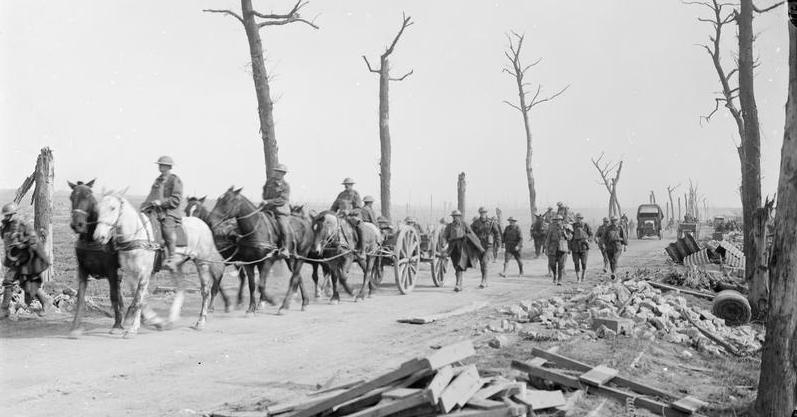The British Imperial War Museum (IWM) has released a book, “In Their Own Words,” featuring the letters of eleven people and telling their never-before-released stories from World War I.
Herbert Ward was 17 years old when he was commissioned into the Royal Flying Corps (RFC) in June of 1915. He made reconnaissance flights over the German lines until he was shot down in November.
Christmas of 1915 was spent in the hospital with other prisoners of war that had been injured. He was allowed to write a note to his squadron to let them know he was “quite all right.” The Germans then dropped the note over the British lines.
In his memoirs, Ward wrote that each of the prisoners received a present from the Germans. Ward’s gift was a Koh-i-Noor pencil that he cherished. Each prisoner also received a Christmas card and a glass of “champagne,” which the French “greeted with derision.”
Later, Ward was moved with other prisoners to another camp. A group of British servicemen managed to escape the train through a half-opened window. The first man actually got stuck in the window and had to be shoved through “which sent him crashing on to the track below.”
Ward and a friend escaped to Switzerland through a hard and risky journey. Once in Switzerland, they were sent to a headquarters in France. Brigadier General Hugh Trenchard insisted that the men shoud have champagne, but there was none available.
Captain Lawrence Gameson served in the Royal Army Medical Corps. He saw the brutality of the Battle of the Somme and described the conditions he worked in as a doctor, including flies, blood, victims of poison gas and “scores upon scores of reeking, bleeding men.”
In his memoirs, he discusses the time he found a dead British soldier who had letters from his wife and mother with him. Gameson described the letters as “the stuff of raw human sorrow.”
He also described his living conditions: “The walls are rotting planks. The floor is slimy with mud that stinks of the fields of death, of dung and of dead bodies. The guns are making my head ache.”
Gameson’s grandson, Paul Gameson, was born after his grandfather died. He said he was very affected by reading his grandfather’s memoirs while he was a teenager, thinking about the conditions that his grandfather had to work in and the trauma of seeing the effects of trench warfare up close.
Paul Gameson believes that his grandfather’s story needs to be heard to remind us that this inhumanity to others is part of our past so that we can prevent it from happening in the future.
The author of the book is Anthony Richards, head of documents and sound at the IWM. He said that the IWM has thousands of personal accounts. The museum has letters, diaries, and memoirs, each with their own unique story, Mail Online reported.
The book is based on eleven lives. Each writer tells a new and interesting tale from their personal experience in World War I.
